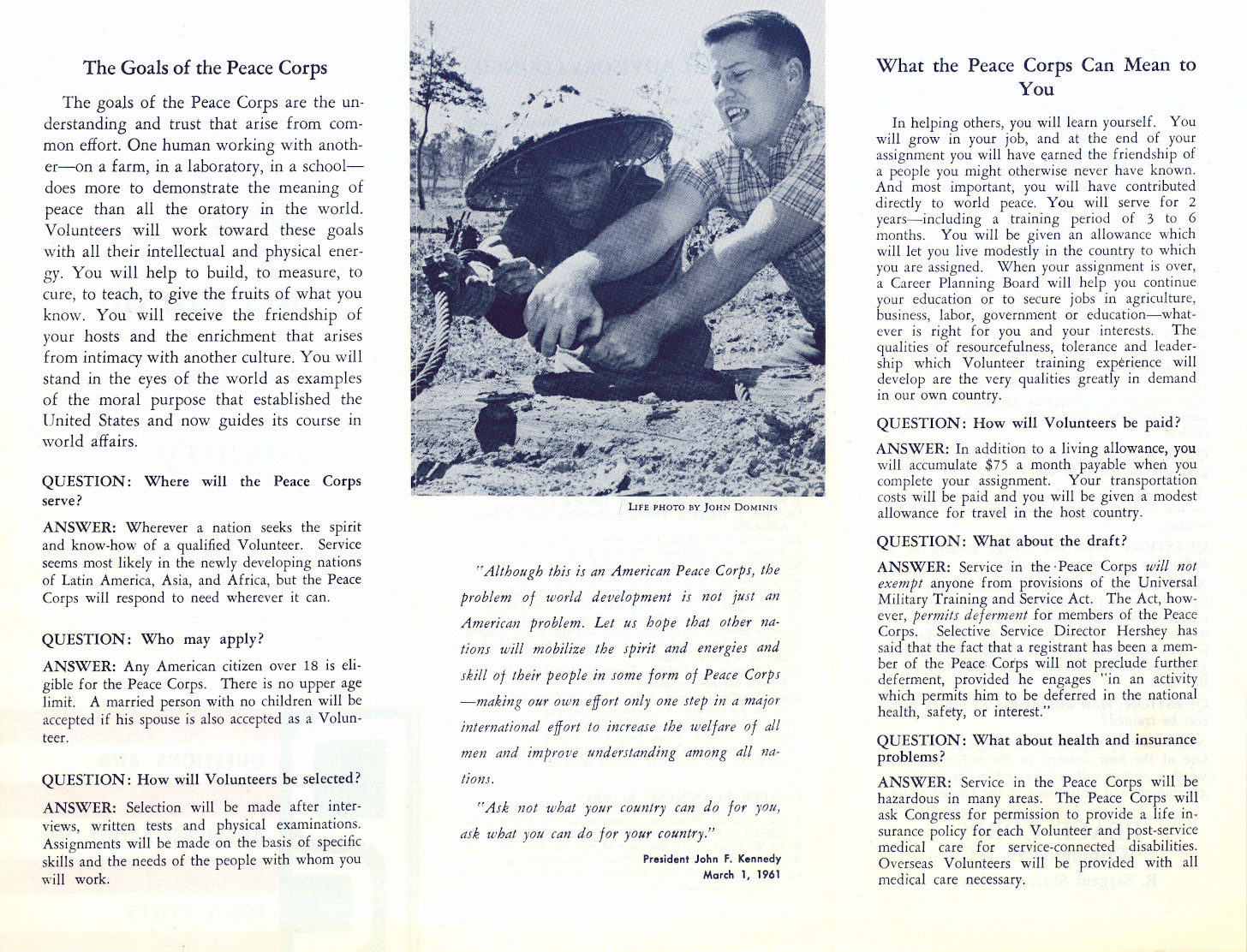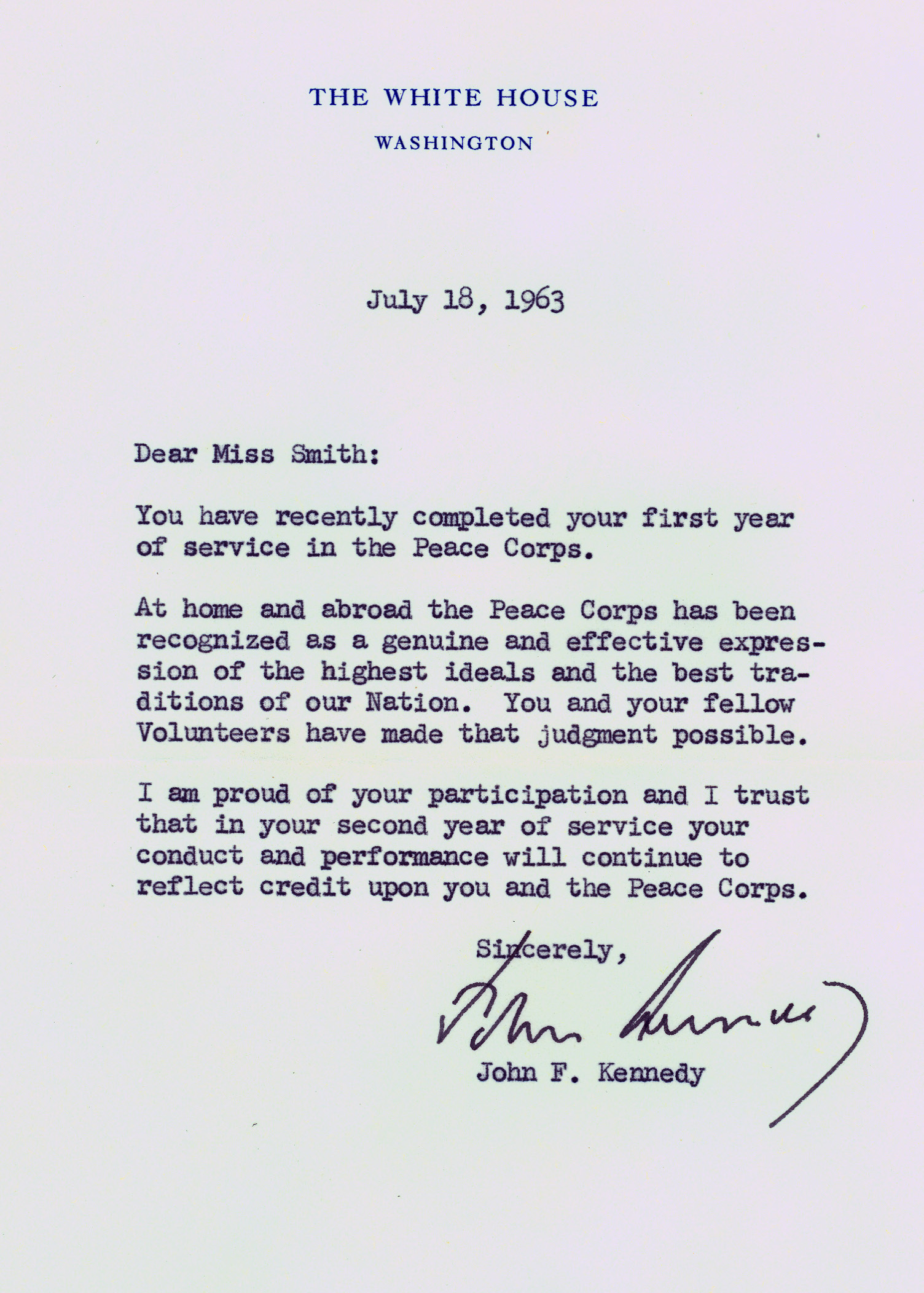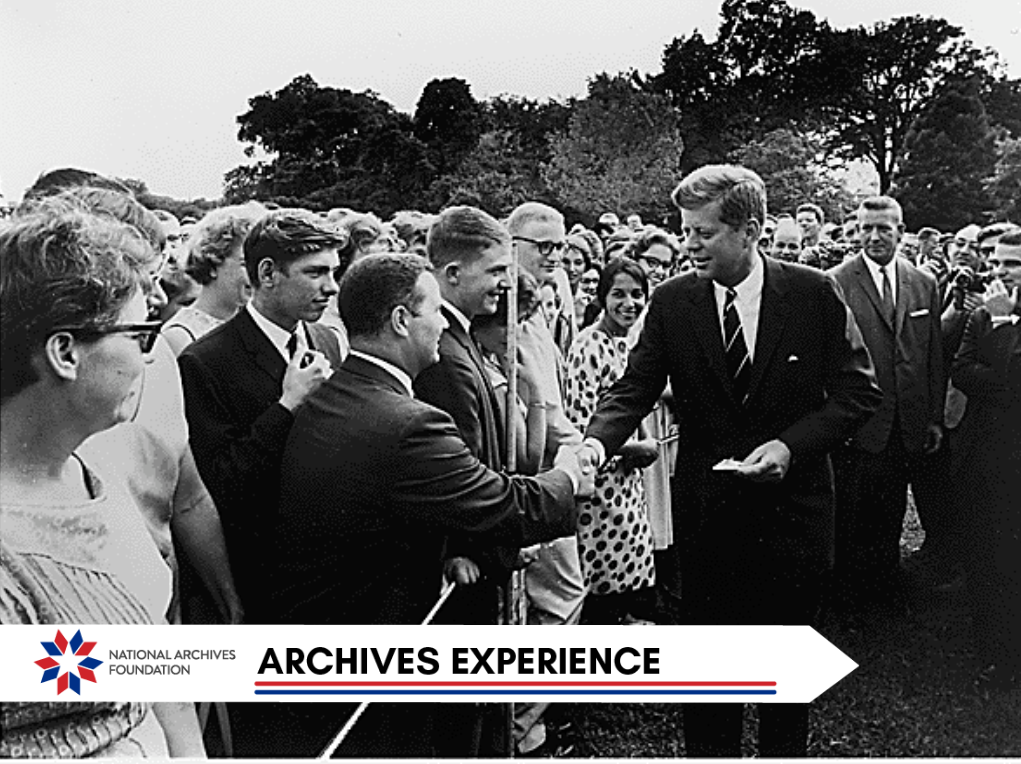Archives Experience Newsletter - March 26, 2024
What You Can Do For Your Country
This month marks the 63rd anniversary of the founding of the Peace Corps, an agency of the United States government devoted to promoting peace and friendship across the world. The idea started as a sort of challenge; it was part of a presidential campaign speech by John F. Kennedy delivered in October of 1960. Speaking to University of Michigan college students at 2 a.m. after a long day of campaigning, he asked, “How many of you who are going to be doctors are willing to spend your days in Ghana? Technicians or engineers, how many of you are willing to work in the Foreign Service and spend your lives traveling around the world?
A mere five months later, the United States Peace Corps was signed into existence on March 1, 1961 by newly elected President John F. Kennedy through an executive order.
Executive Order 10924
National Archives Identifier: 300010
The Peace Corps stemmed from a necessity during the Cold War. President Kennedy noted that the Soviet Union had thousands of qualified men and women, teachers, doctors, and scientists who would drop everything to live abroad in the service of communism, while the United States had no such thing. Thus, an agency was needed that would spread American ideals, globally promoting democracy, development, freedom, and peace.
Landon to Rostow arguing the need
National Archives Identifier: 193352
After the executive order was signed, Ghana and Tanganyika (modern day Tanzania) were the first two countries to participate. A group of volunteers was assembled, and President Kennedy personally saw them off.

First Volunteers leaving for Ghana and Tanzanika
National Archives Identifier: 194174
After that departure, the inaugural year saw 900 volunteers serve in 16 countries. To participate in the Peace Corps, countries must invite the agency in and guarantee safety for the volunteers. Participants train for three months before departure and must serve abroad for two years. The job includes many challenges, from hazardous conditions to political upheaval in the host country. Volunteers are expected to learn the local language, respect local customs, and live in similar conditions. For all this, volunteers are paid only a small stipend. Of course, they are aware of these details up front. This information can be found in this 1960s Peace Corps brochure.

Peace Corps recruiting brochure
National Archives Identifier: 246936040
Despite the potential of years of hardships, serving in the Peace Corps was and still is an extremely honorable decision. It has a rigorous application process and a very selective acceptance rate. Since its inception in 1961, the Peace Corps has been open to both men and women over the age of 18 and of diverse backgrounds. Volunteers who serve are showcasing the “best ideals of our Nation,” as seen in this letter to a volunteer.

Letter from Kennedy to Volunteer
National Archives Identifier: 246936029
Originally part of the State Department, the Peace Corps became an independent agency in 1981. Since then, more than 240,000 volunteers have served in 142 countries. All these years later, the original three tenets have not changed:
- to help the people of interested countries and areas in meeting their needs for trained workers;
- to help promote a better understanding of Americans on the part of the peoples served; and
- to help promote a better understanding of other peoples on the part of Americans.
Neither has the appreciation of many Presidents who have thanked the volunteers for their service.
Reagan speaking to Peace Corps from Rose Garden
(10 minutes 31 seconds)
National Archives Identifier: 74627726

Obama speaking to Peace Corps volunteers
National Archives Identifier: 176553004














